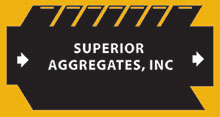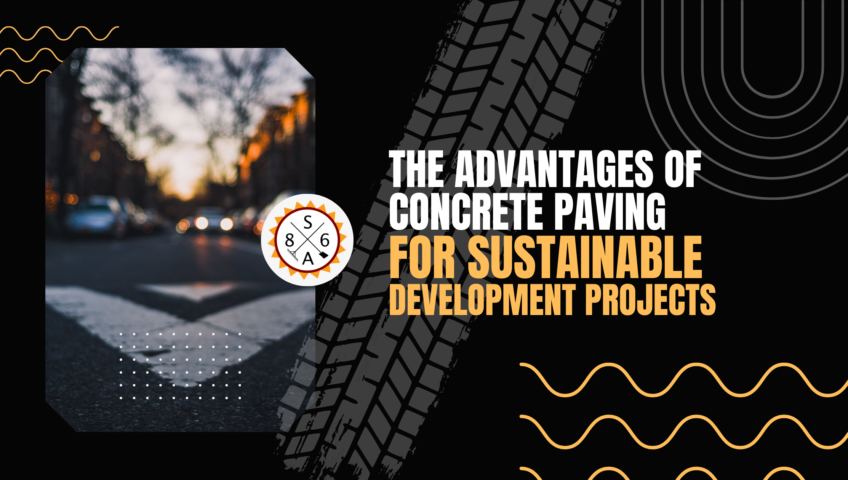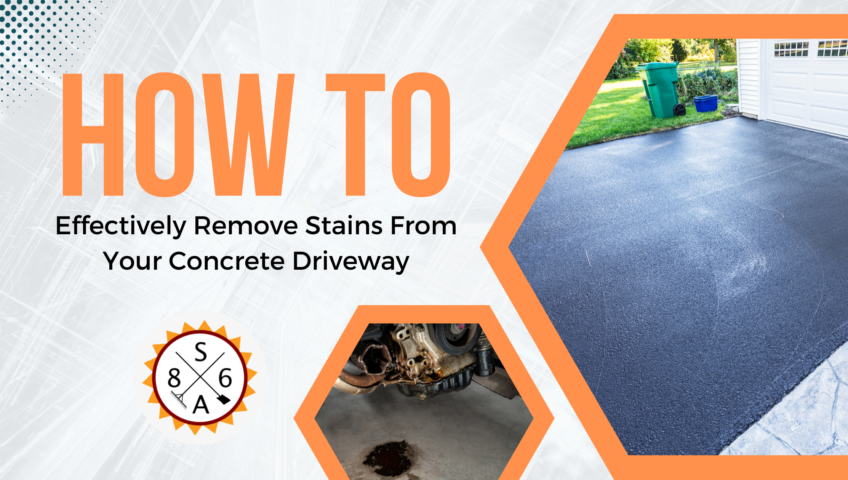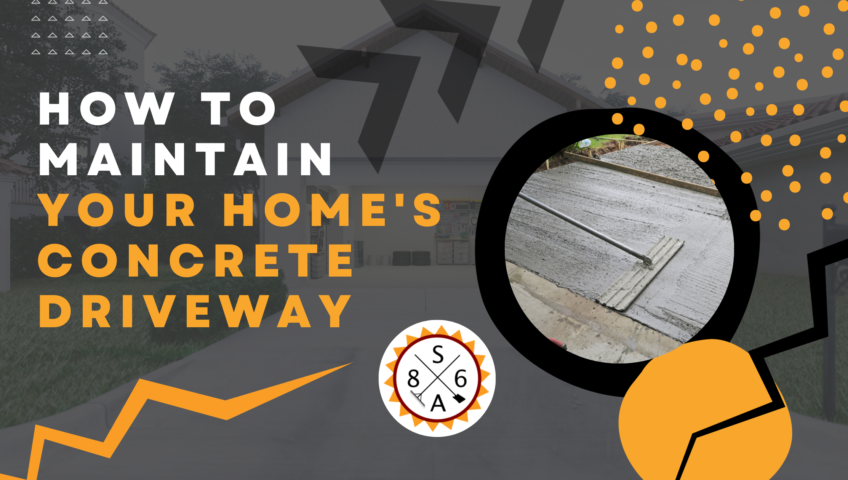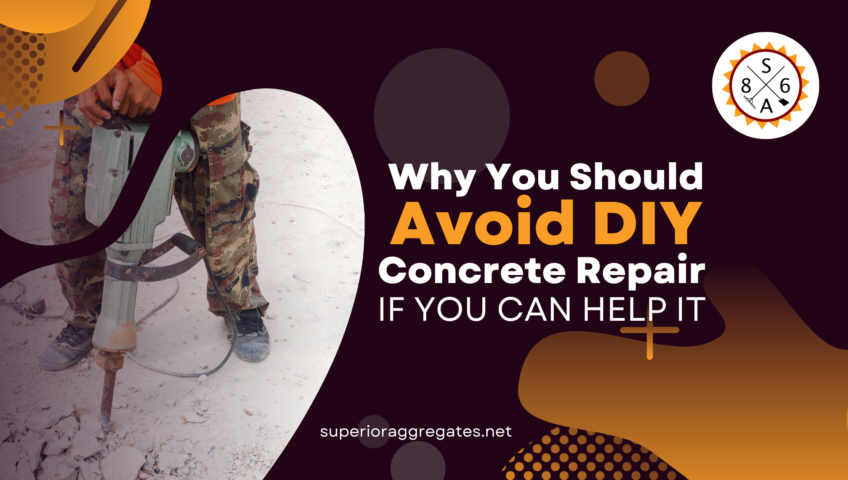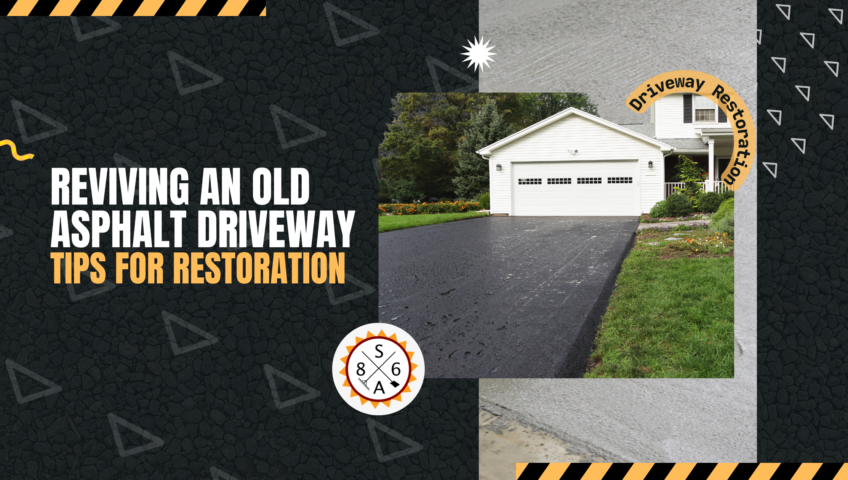
Reviving an Old Asphalt Driveway: Tips for Restoration
Your driveway is often the first impression visitors have of your home. Over time, the wear and tear from weather, heavy vehicles, and the passage of time can take a toll on your asphalt driveway, leaving it cracked, faded, and in need of restoration. Fortunately, reviving an old asphalt driveway is a manageable task with the right approach. In this guide, we’ll explore some essential tips for restoring your asphalt driveway to its former glory, and we’ll discuss the role of concrete companies and concrete contractors in the process.
Assess the Damage
Before embarking on a driveway restoration project, it’s crucial to assess the extent of the damage. Inspect the surface for cracks, potholes, and areas of uneven wear. Identify any underlying issues that may have contributed to the deterioration, such as poor drainage or soil erosion. Understanding the scope of the damage will guide your restoration efforts and help determine whether professional assistance from concrete companies or concrete contractors is necessary.
Clean and Prepare
Cleaning the driveway thoroughly is a fundamental step in the restoration process. Remove debris, weeds, and any loose asphalt or gravel. A pressure washer can be a valuable tool for this task, helping to eliminate ingrained dirt and grime. For stubborn stains or oil spots, consider using specialized cleaning agents. Once cleaned, allow the surface to dry completely before proceeding to the next steps.
Fill Cracks and Potholes
Addressing cracks and potholes promptly is essential to prevent further deterioration. Use a quality asphalt patch or filler to repair minor cracks. For larger potholes, a cold or hot asphalt mix may be required. Smooth the patched areas to create a seamless surface. Neglecting these repairs can lead to more extensive damage, making the restoration process more complex and costly.
Apply Sealcoating
Sealcoating is a crucial step in preserving and enhancing the appearance of your asphalt driveway. This protective layer acts as a barrier against the elements, including UV rays, water, and chemicals. Applying sealcoat every few years can significantly extend the lifespan of your driveway and keep it looking fresh. While some homeowners opt for a DIY approach, hiring a professional concrete contractor or concrete company ensures a thorough and even application.
Consider Resurfacing
In cases where the asphalt surface has extensive damage or uneven wear, resurfacing may be the most effective solution. Resurfacing involves applying a new layer of asphalt over the existing one, providing a smooth and durable surface. This process requires precision and expertise, making it a task best entrusted to experienced concrete contractors. Consulting with reputable concrete companies can help you determine whether resurfacing is the right choice for your driveway.
Address Underlying Issues
To ensure the longevity of your restored driveway, it’s crucial to address any underlying issues contributing to its deterioration. Poor drainage, inadequate foundation support, or soil erosion can undermine the effectiveness of restoration efforts. Concrete contractors specializing in driveways can assess these issues and implement solutions, such as proper grading, drainage systems, or base reinforcement.
Regular Maintenance
Once your asphalt driveway is restored, regular maintenance is key to preserving its condition. Sweep away debris regularly, promptly address any spills or stains, and be mindful of heavy vehicles or sharp objects that could damage the surface. Periodic resealing and touch-ups will further protect your investment.
In conclusion, reviving an old asphalt driveway requires a systematic approach, from assessing the damage to addressing underlying issues and implementing regular maintenance. While some homeowners may choose a DIY approach, enlisting the expertise of concrete contractors like Superior Aggregates can ensure a professional and long-lasting restoration. With careful attention and the right resources, you can transform your worn-out driveway into a durable and aesthetically pleasing entrance to your home.
Your driveway is often the first impression visitors have of your home. Over time, the wear and tear from weather, heavy vehicles, and the passage of time can take a toll on your asphalt driveway, leaving it cracked, faded, and in need of restoration. Fortunately, reviving an old asphalt driveway is a manageable task with the right approach. In this guide, we’ll explore some essential tips for restoring your asphalt driveway to its former glory, and we’ll discuss the role of concrete companies and concrete contractors in the process.
Assess the Damage
Before embarking on a driveway restoration project, it’s crucial to assess the extent of the damage. Inspect the surface for cracks, potholes, and areas of uneven wear. Identify any underlying issues that may have contributed to the deterioration, such as poor drainage or soil erosion. Understanding the scope of the damage will guide your restoration efforts and help determine whether professional assistance from concrete companies or concrete contractors is necessary.
Clean and Prepare
Cleaning the driveway thoroughly is a fundamental step in the restoration process. Remove debris, weeds, and any loose asphalt or gravel. A pressure washer can be a valuable tool for this task, helping to eliminate ingrained dirt and grime. For stubborn stains or oil spots, consider using specialized cleaning agents. Once cleaned, allow the surface to dry completely before proceeding to the next steps.
Fill Cracks and Potholes
Addressing cracks and potholes promptly is essential to prevent further deterioration. Use a quality asphalt patch or filler to repair minor cracks. For larger potholes, a cold or hot asphalt mix may be required. Smooth the patched areas to create a seamless surface. Neglecting these repairs can lead to more extensive damage, making the restoration process more complex and costly.
Apply Sealcoating
Sealcoating is a crucial step in preserving and enhancing the appearance of your asphalt driveway. This protective layer acts as a barrier against the elements, including UV rays, water, and chemicals. Applying sealcoat every few years can significantly extend the lifespan of your driveway and keep it looking fresh. While some homeowners opt for a DIY approach, hiring a professional concrete contractor or concrete company ensures a thorough and even application.
Consider Resurfacing
In cases where the asphalt surface has extensive damage or uneven wear, resurfacing may be the most effective solution. Resurfacing involves applying a new layer of asphalt over the existing one, providing a smooth and durable surface. This process requires precision and expertise, making it a task best entrusted to experienced concrete contractors. Consulting with reputable concrete companies can help you determine whether resurfacing is the right choice for your driveway.
Address Underlying Issues
To ensure the longevity of your restored driveway, it’s crucial to address any underlying issues contributing to its deterioration. Poor drainage, inadequate foundation support, or soil erosion can undermine the effectiveness of restoration efforts. Concrete contractors specializing in driveways can assess these issues and implement solutions, such as proper grading, drainage systems, or base reinforcement.
Regular Maintenance
Once your asphalt driveway is restored, regular maintenance is key to preserving its condition. Sweep away debris regularly, promptly address any spills or stains, and be mindful of heavy vehicles or sharp objects that could damage the surface. Periodic resealing and touch-ups will further protect your investment.
In conclusion, reviving an old asphalt driveway requires a systematic approach, from assessing the damage to addressing underlying issues and implementing regular maintenance. While some homeowners may choose a DIY approach, enlisting the expertise of concrete contractors like Superior Aggregates can ensure a professional and long-lasting restoration. With careful attention and the right resources, you can transform your worn-out driveway into a durable and aesthetically pleasing entrance to your home.
